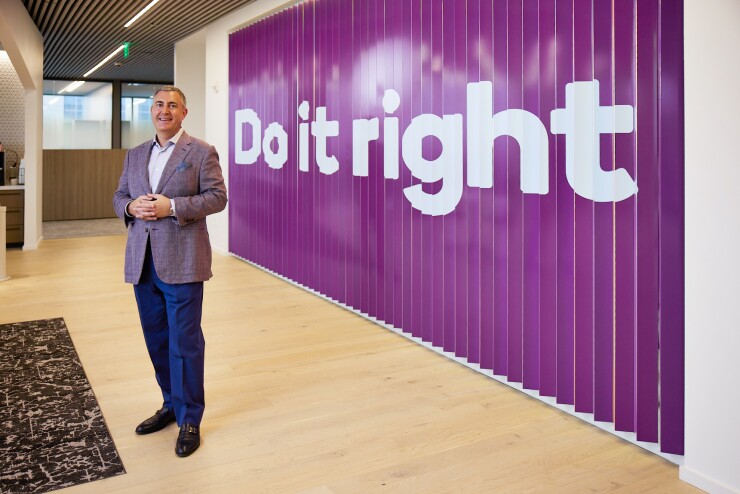
The surprise exit of longtime Ally Financial CEO Jeffrey Brown, who announced plans Wednesday to step down by early next year, comes at a time when the auto lending giant is facing trickier terrain.
Ally did not name Brown's successor, and analysts described his planned departure as sudden, saying that it could point to troubles ahead.
Brown, who's been Ally's CEO for nearly nine years, joined the company 14 years ago and played a key role in reshaping it after the financial crisis and its 2006 spinoff from General Motors.
Ally, once known as GMAC, has continued playing a major role in the auto lending market but has also built a large digital bank and expanded into other consumer lending sectors.
The company's stock price fell roughly 3% after the news. Ally, which has
Brown's exit caught analysts off-guard. One reason was the lack of a clear succession plan, though Ally said it's hired a search firm to find its next CEO.
Even prior to Brown's departure, Ally has recently had some turnover at the top, with its previous chief financial officer leaving in October 2022 and its new CFO joining only three months ago.
The company's new chief financial officer, Russell Hutchinson, previously spent two decades in Goldman Sachs' investment banking arm, where his clients included Ally.
Still, Hutchinson will have to "step up a lot" to run the business at a time when auto lending is "in a tough spot," said Vincent Caintic, an analyst at Stephens Inc.
"To have the two top executives be new is a concern," Caintic said.
U.S. auto lenders, including the $197 billion-asset Ally, have been reporting a steady deterioration in the quality of their loans after a long period of exceedingly healthy metrics. Ally charged off nearly $400 million of its loans during the second quarter, more than double the level a year earlier.
The auto lending industry enjoyed a strong run during the COVID-19 pandemic because supply shortages led to higher car prices even as consumer demand remained strong.
Brown's exit from Ally may also "signal a further recognition that higher-for-longer interest rates could weigh on their earnings outlook," Wells Fargo Securities analyst Donald Fandetti wrote in a research note.
Ally's online bank has successfully attracted consumer deposits over the years thanks in part to relatively high yields on its savings accounts and certificates of deposit. But its interest costs have jumped over the last year as depositors have sought higher yields in the wake of the Federal Reserve's sharp rate increases.
David Long, an analyst at Raymond James, said Wednesday that he is cautious on Ally's stock in light of what he described as pressure on the company's earnings.
"Given the abrupt nature of this announcement, continued upward pressure on interest rates, and indications of a deterioration in consumer financial health, we believe pressure remains," Long wrote in a note to clients.
Ally said the search for Brown's successor has kicked off and that it has hired a global executive search firm.
Caintic, the Stephens analyst, said it isn't entirely clear who will succeed Brown, nor whether the new CEO will come from inside or outside Ally. The company declined to comment on whether it will look at both internal and external candidates.
One internal option could be
In February 2015, when Brown started as Ally's CEO,
Under Brown's leadership, Ally leaned more heavily on the used-car lending business. In the most recent quarter, used-vehicle loans accounted for 63% of Ally's total originations, up from
Brown is set to stay with the company until Jan. 31 or an "earlier date determined by the Chair of the Board to help ensure a smooth leadership transition," the company said.
Brown will become president of Hendrick Automotive Group, a longtime Ally customer. Hendrick, which has 131 franchises across 13 states, is the largest privately held dealership group in the country, Ally said.
"I especially look forward to building on Hendrick's relationship with Ally as a customer and seeing both businesses continue to grow and succeed," Brown said in the press release.
American Banker named






